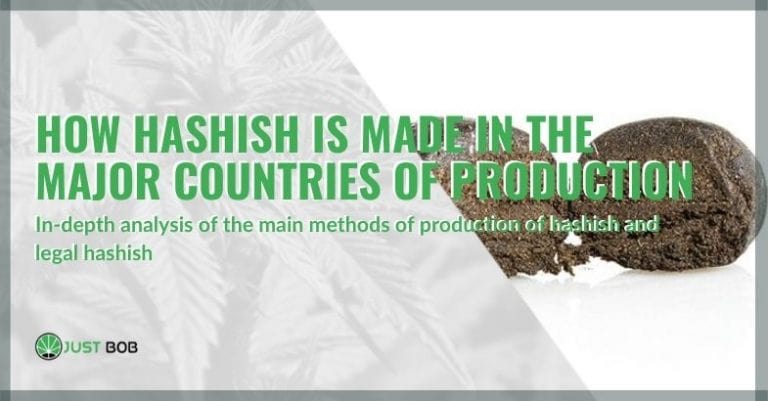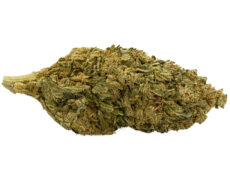Modified on: 19/04/2024
IN-DEPTH ANALYSIS OF THE MAIN METHODS OF PRODUCTION OF HASHISH AND LEGAL HASHISH
Hashish is a derivative of cannabis that usually comes in dough or sphere and can have different textures and colours.
Intrigued by this product, it is likely that you, like many other people, have wondered how it is possible to obtain a CBD hash from cannabis plants.
-
 SMALL & BIG
SMALL & BIGBUBBLEGUM
Indoor | CBD – CBDA<22%
Starting from:EASTER SALE -10%
1,25CHF1,10CHF/gGrams3 5 10 20 50 100 -


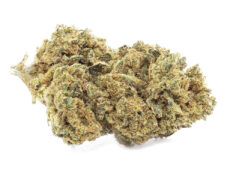
DO SI DOS
Starting from: 2,00CHF/gIndoor | CBD – CBDA < 19%
Grams3 5 10 20 50 100 -


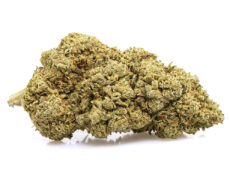
ROYAL GG#4
Starting from: 2,30CHF/gIndoor | CBD – CBDA < 40%
Grams3 5 10 20 50 100 -


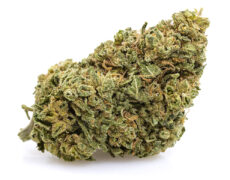
GORILLA GLUE
Starting from: 2,90CHF/gIndoor | CBD – CBDA < 20%
Grams3 5 10 20 50 100
How is hashish made?
Maybe through the pressing of the plant?
Not! The methods of realization are different.
Continuing to read, you will be able to find out the main production techniques of this cannabis derivative and how CBD hash is made, the only version of this product that can be legally purchased in Europe (not in Switzerland).
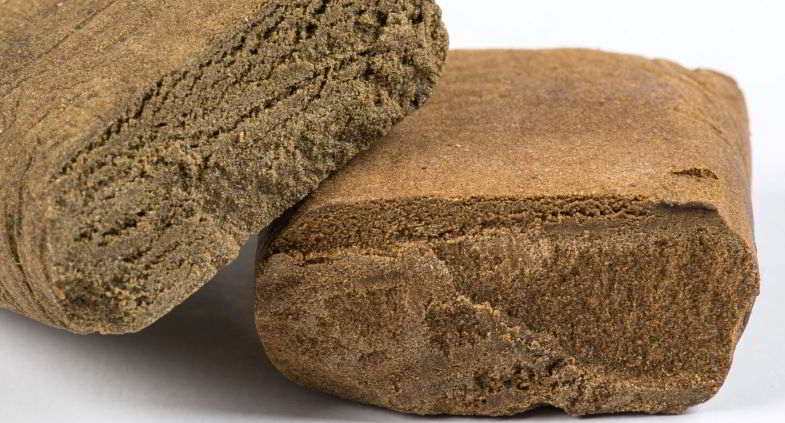

How is hashish produced? Here are the most popular methods around the world
Hashish, in jargon also called ‘smoke’, is a derivative of cannabis that has ancient origins.
It is a concentrate of pollen (or kief) that is separated from the flowers of the hemp plant and then processed to obtain the loaves of a malleable and particularly fragrant product.
In addition to the aromas and scents, what makes hashish a unique product is the high percentage of cannabinoids it contains. THC prevails in the resin extracted from traditional hemp plants, in that extracted from CBD weed plants, instead, CBD.
It means that compared to the consumption of marijuana buds, hashish causes much more intense and lasting effects.
But concretely, how is hashish produced?
Depending on the product you want to obtain and the geographical area of origin, three techniques are mainly used to obtain hashish:
- dry sieving.
- the processing of fresh plants.
- ‘Bubble hash’ (extraction with ice water).
Let’s find out in detail how each of these practices takes place.
Dry sieving: a technique with ancient origins
One of the oldest and most used methods to produce hashish is undoubtedly dry sieving.
What does it consist of?
To obtain hashish using this technique, it is necessary to start from the dried cannabis buds, from which the resin must be extracted.
Before proceeding, cannabis buds are also frozen. Suppose you wonder why the reason is simple. When exposed to very low temperatures, trichomes separate from flowers much easier, so the extraction process is faster and easier to perform.
As soon as the flowers are ready, they are rubbed over a sieve placed on top of a container that, thanks to this operation, will be filled with pollen or kief. But, of course, the sieves are very large in the industrial field, and instead of the containers, there are large tanks.
Once all the resin has been extracted, it will be heated and pressed on special plates to obtain a soft and fragrant dough tending to brown, dark green, or light green.
Sieving of fresh plants: when hashish is produced, literally manually
In addition to dried plants, hashish can also be obtained from the fresh resin, and the product obtained is called ‘charas‘.
The extraction of fresh cannabis resin is typical of India but, due to the success of the hashish obtained, it has also been exploited in many other places around the world (even to produce legal hashish).
Let’s see, then, what it consists of.
After cutting the cannabis buds from the fresh plants, they are rubbed into your hands so that the resin can adhere to them.
As a layer of resin has been deposited on the palms of the hands and fingers, this can be detached through a unique tool to work until it is obtained soft and fragrant spheres of product.
After this process, all that remains is to mature the charas spheres until they become a dark (almost black) colour.
Bubble Hash (or Ice Wax): the latest hash production technique
In addition to the two methods, we talked about in the previous paragraphs, from the 90s onwards, we began to produce hashish using another technique: the Bubble Hash or Ice Wax.
What does it consist of?
To produce hashish with this technique, it is necessary to freeze the cannabis buds and equip yourself with a tool called a Bubble box (a system composed of overlapping sieves, prepared with increasingly dense meshes).
To start, the frozen buds are immersed in very cold water. Then this water is filtered with the Bubble box: it is possible to group trichomes of different sizes perfectly clean and free of vegetable substances.
After this phase, it is essential to eliminate all moisture, also thanks to paper or absorbent fabrics, and then store the product obtained in a cool place to dry for a few weeks.
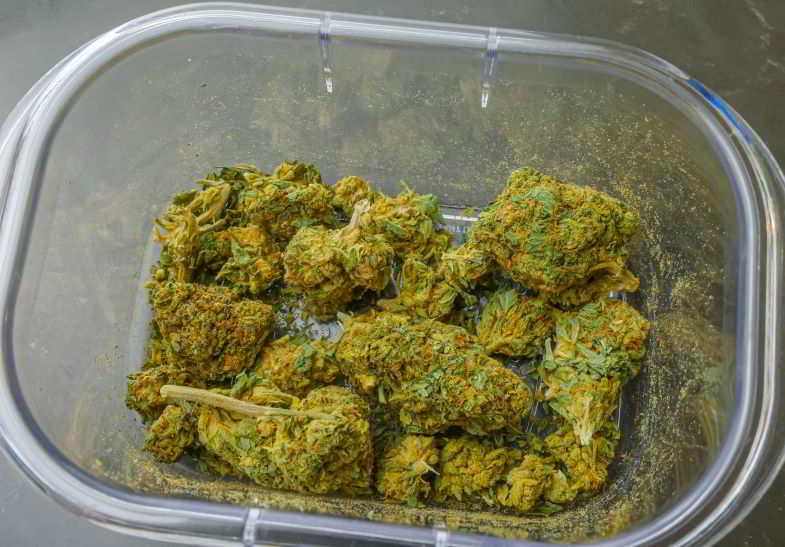

How is legal hashish made?
Legal hashish, i.e., Hashish free of THC (tetrahydrocannabinol) and CBD cannabis plants, can also be produced in another way.
To be sure that there are no traces of psychotropic substances in the product obtained, the resin is extracted from plant species apart from hemp and to this, in addition to the spicy aromas and aromas typical of hashish, pure CBD buds crystals are added.
In this way, you get a product that can be legally purchased even in Europe, which has nothing to envy to pure hashish extracted from illegal cannabis.
Read also: 3 varieties of marijuana perfect for the winter season
In conclusion
If you have spent a few minutes reading this article, now you too know the main methods of producing hashish.
Depending on the geographical area or the product you want to obtain, you use one technique or the other, while to produce legal hash, which you can also buy in our Justbob store, you mainly use the last one we talked about.
After this in-depth analysis, if you love collecting cannabis buds or some plant derivatives (such as CBD oil), we invite you to visit our cannabis light shop.
Choose the items you like the most and receive them directly at home with an anonymous packaging.
We are waiting for you on our CBD online shop!


